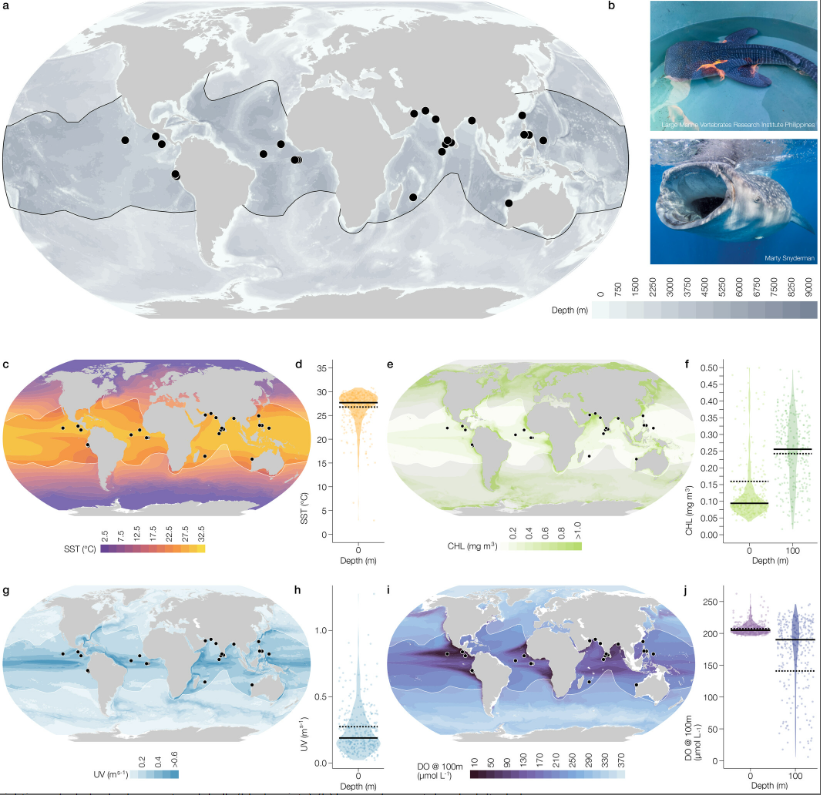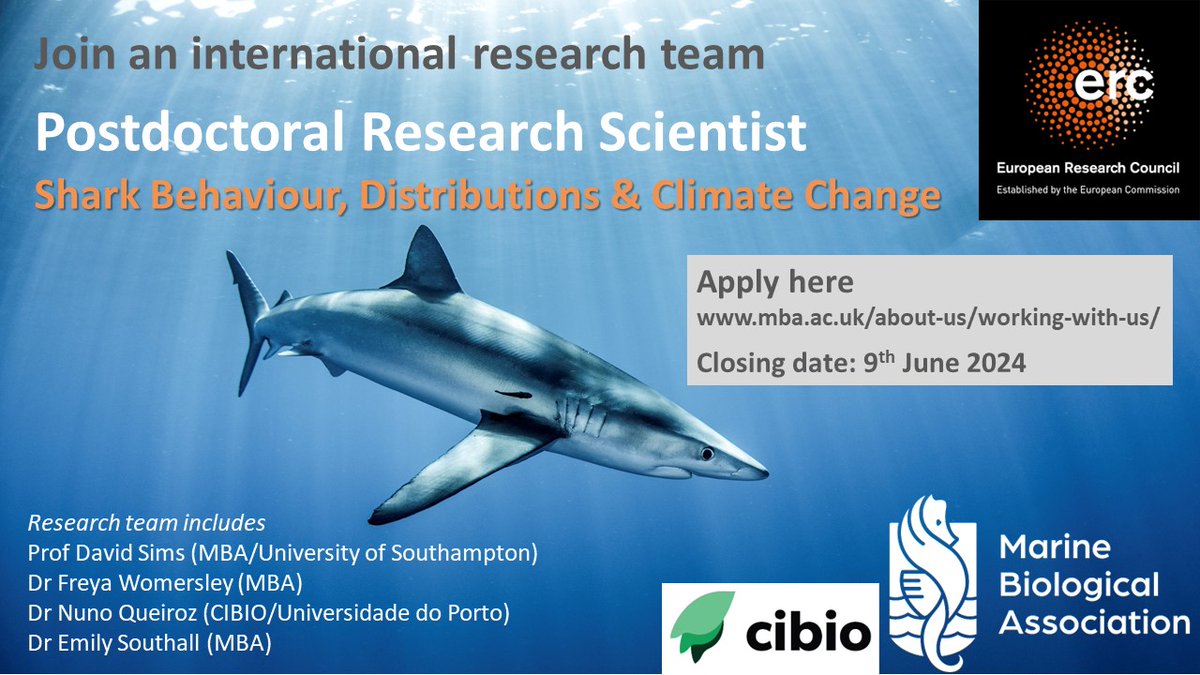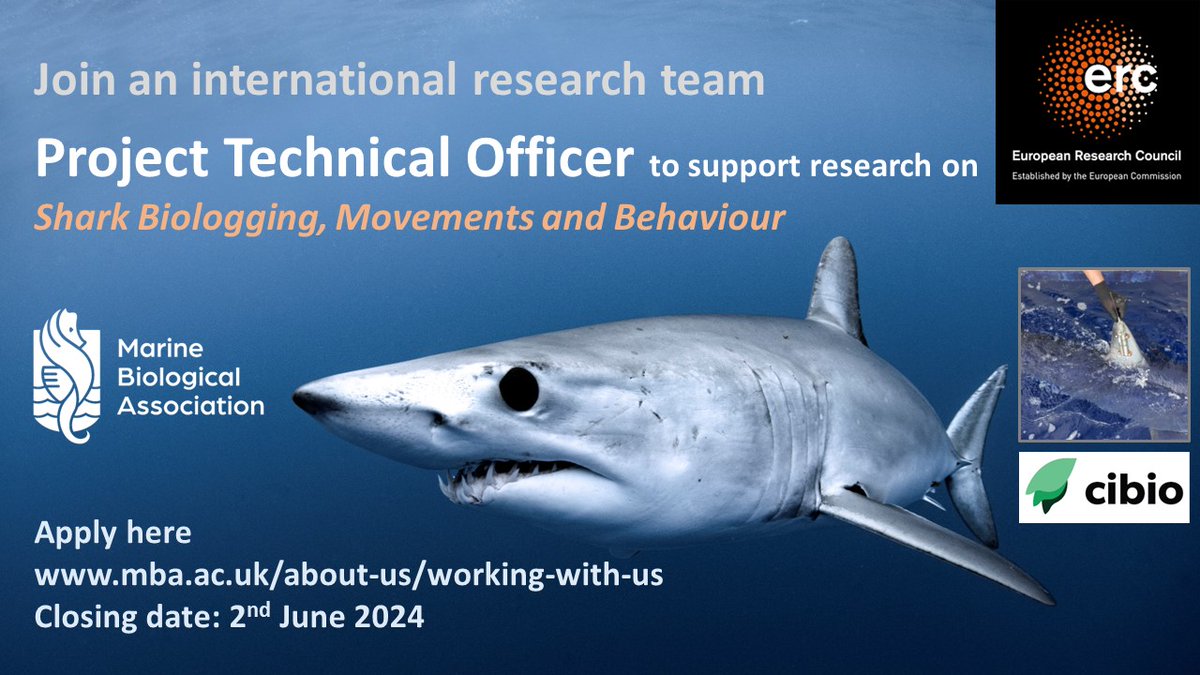
David Sims
@thesimslab
Marine ecologist, university professor #ERCAdG researching #Shark movements, behaviour & conservation w/ #biologging #GlobalSharkMovementProject - views my own.
ID: 3401747363
https://www.globalsharkmovement.org/ 03-08-2015 20:16:06
1,1K Tweet
3,3K Followers
666 Following



🦈 We have two exciting job opportunities available David Sims to work on #shark biologging movements, behaviour & distributions under #ClimateChange as part of the OCEAN DEOXYFISH project: 🌊 Project Technical Officer 🔬 Postdoctoral Research Scientist buff.ly/44FsDse


New Review paper on #OceanDeoxygenation & #sharks, skates and rays - physiological mechanisms, behavioural responses & ecological impacts, led by Matt Waller MBA - Marine Biological Association OceanEarthUniSoton European Research Council (ERC) Open Access here: onlinelibrary.wiley.com/doi/10.1111/jf…
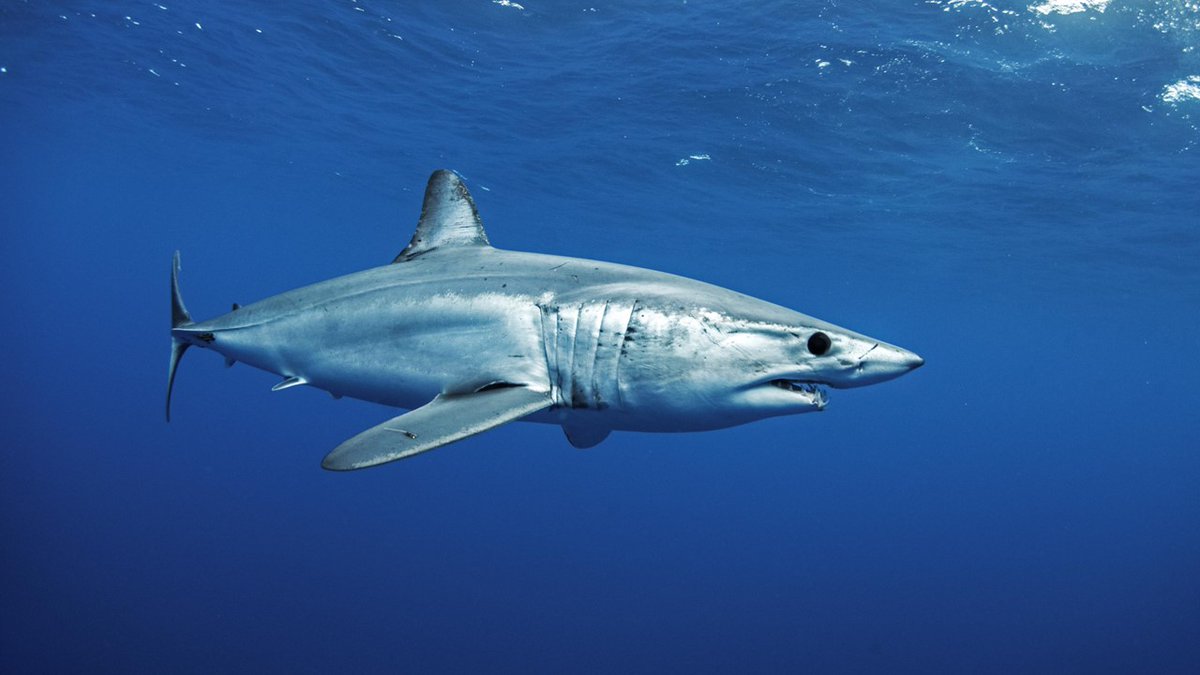


Sharks & climate change - new tag recording O2, Temp and fine-scale movements & activity to explore #shark responses to #MarineHeatwaves & ocean #deoxygenation - out now Open Access in Methods in Ecology and Evolution European Research Council (ERC) dx.doi.org/10.1111/2041-2…
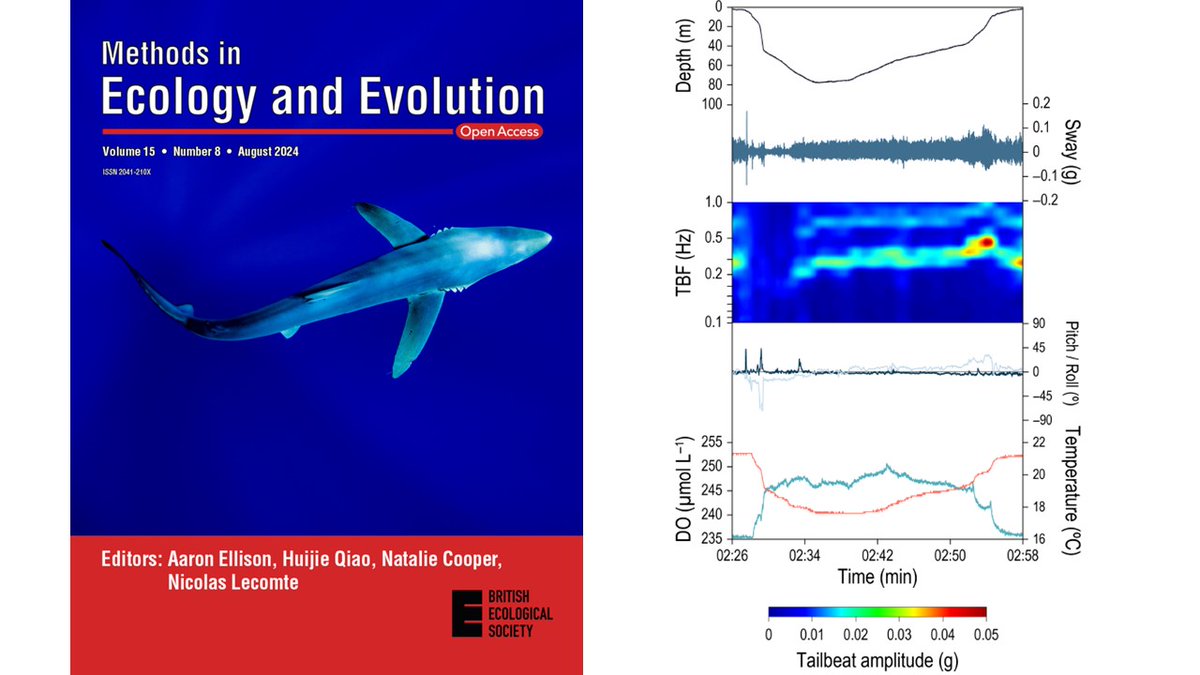

After intense deliberations, everything is ready for ##BESMOVE2024 tomorrow! Ryan Reisinger David Sims



Whale sharks may be up to 15,000 times more likely to collide with a shipping vessel at the end of the century, under a high-emissions scenario, according to a study in NatureClimate. go.nature.com/3zKOOCr
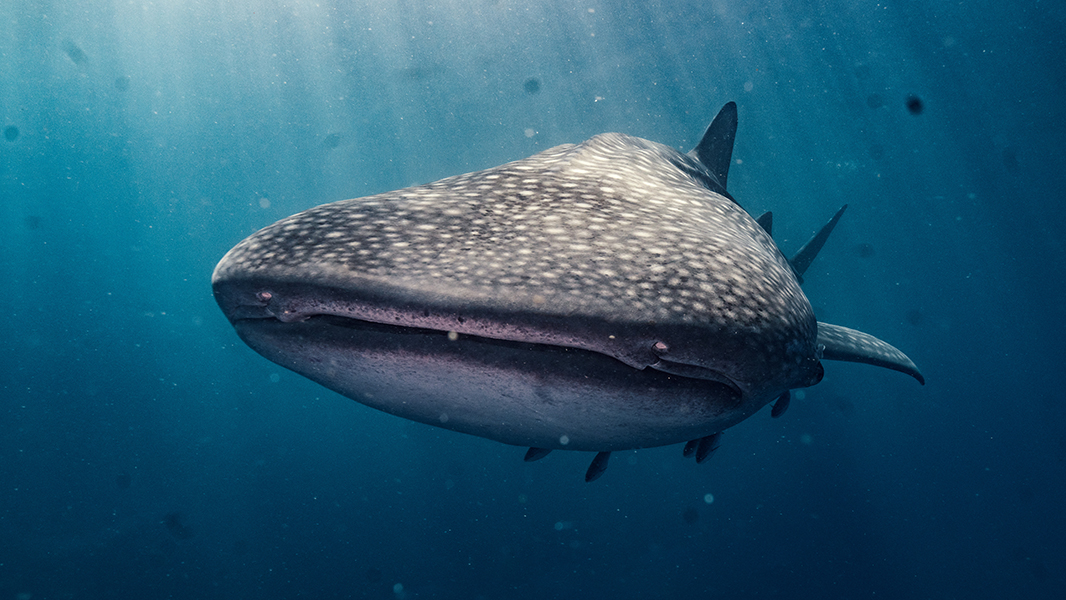

【注目のハイライト】#気候変動:#ジンベイザメ への船舶衝突の脅威が増加 natureasia.com/ja-jp/research… F.WomersleyらのNatureClimate #論文 Climate-driven global redistribution of an ocean giant predicts increased threat from shipping nature.com/articles/s4155… #OA #オープンアクセス MBA - Marine Biological Association

Climate change could drive an increased threat to whale sharks from ship strikes. New research led by MBA - Marine Biological Association and University of Southampton and co-authored by Luciana Ferreira Michele Thums & UWA out today. ➡️ nature.com/articles/s4155…
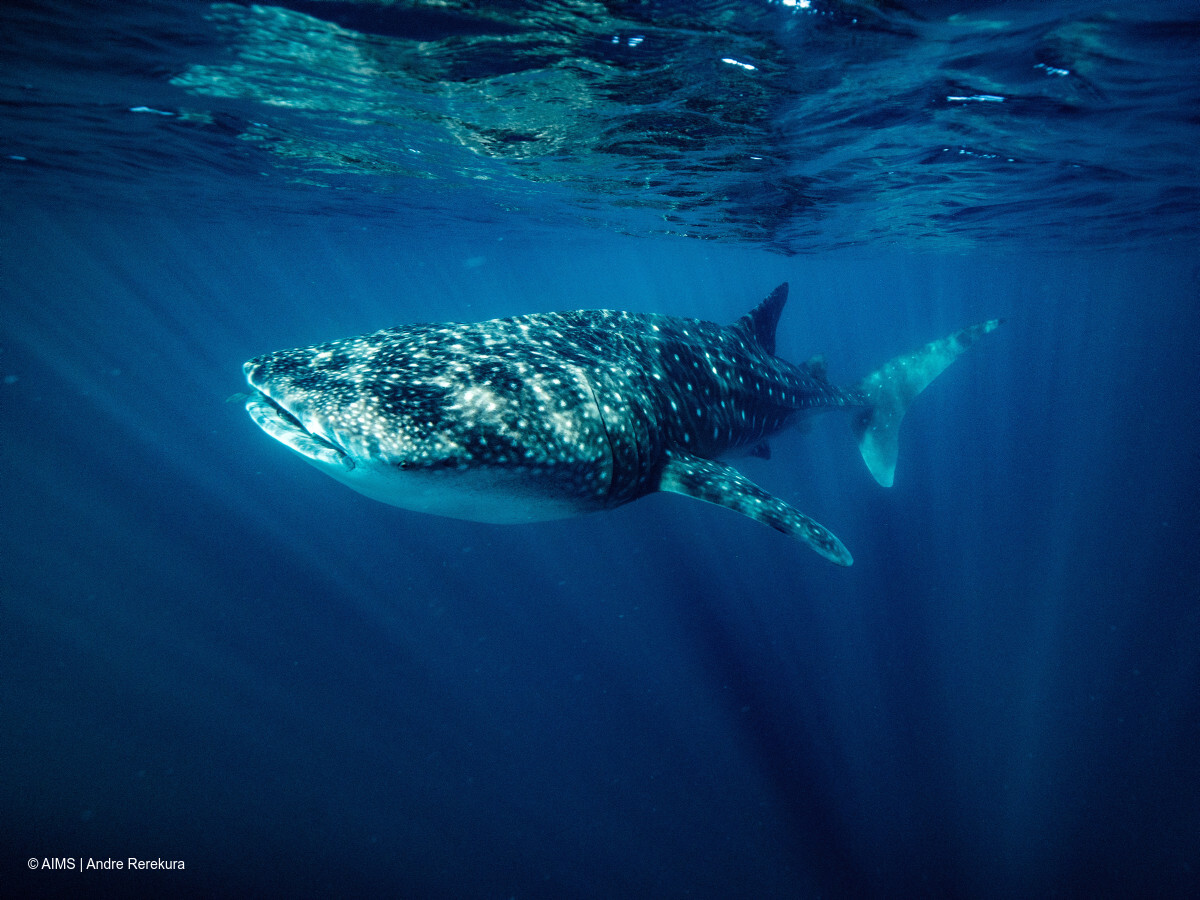



Whale sharks may be 15,000 times more likely to collide with shipping vessels at the end of the century, under high-emissions scenario. Warming oceans may force them to migrate towards cooler environments, leading to higher collision risk: nature.com/articles/s4155… NatureClimate


Whale shark distributions are predicted to shift up to 1,000 km by 2100, due to climate change, putting them at increased risk of collisions with global shipping. Read the new paper co-authored by llsousa.bsky.social and colleagues 👉 nature.com/articles/s4155…
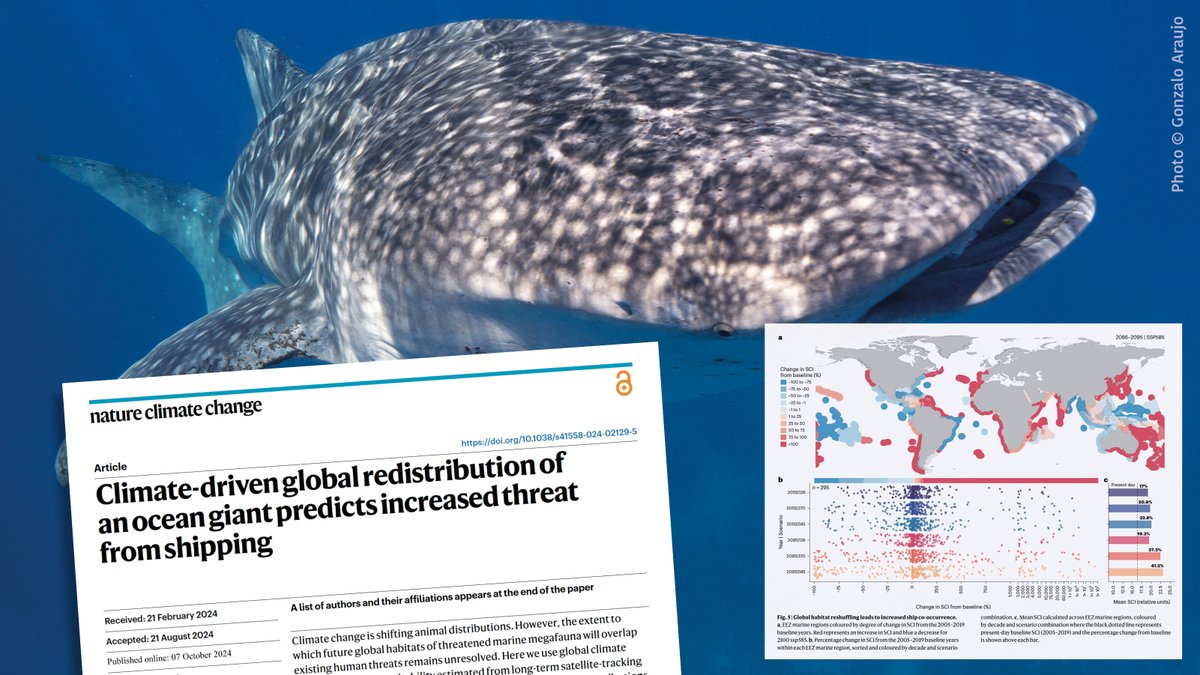
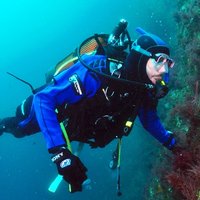

New research from David Sims Freya Womersley Matt Waller - Unlocking the mystery of baby #whaleshark birthing grounds - Extreme environments like #OMZs provide safety from predators & a rich food supply, crucial for neonate survival. doi.org/10.1002/ece3.7…… MBA - Marine Biological Association
